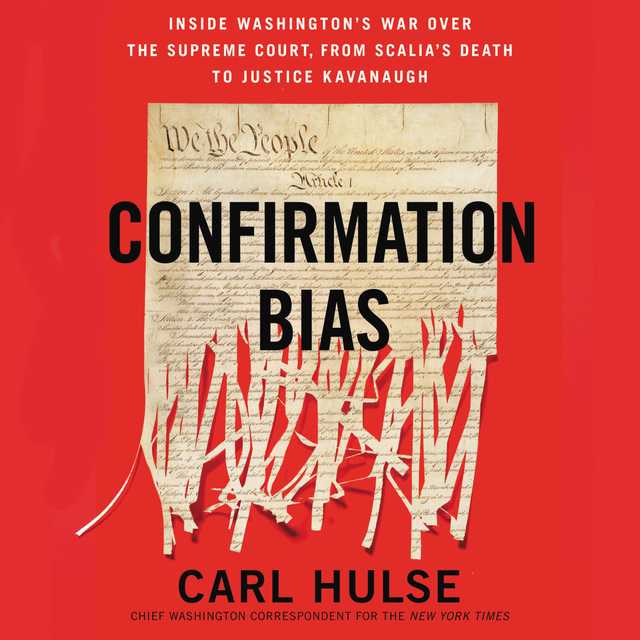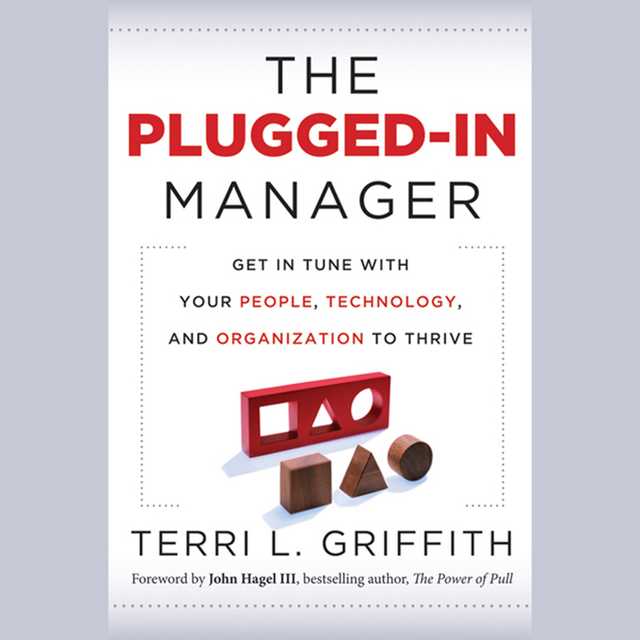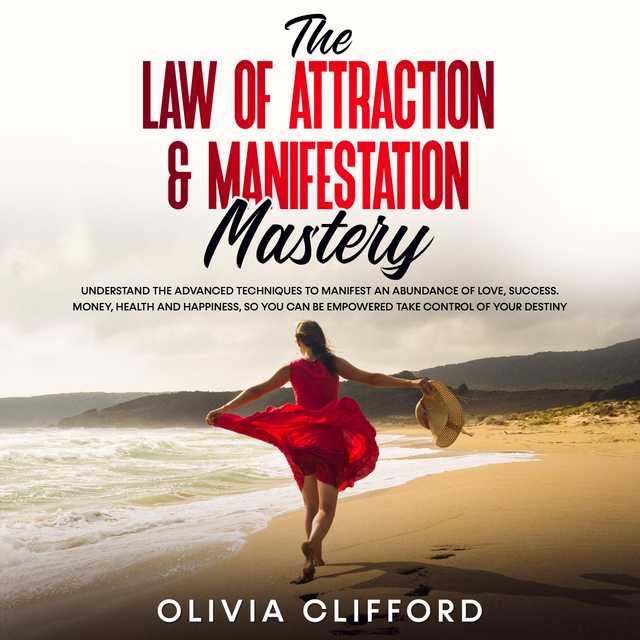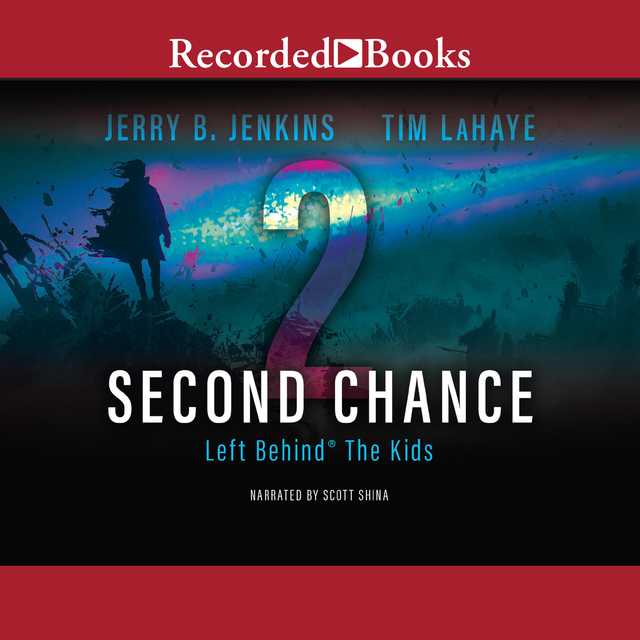Confirmation Bias Audiobook Summary
The Chief Washington Correspondent for the New York Times presents a richly detailed, news-breaking, and conversation-changing look at the unprecedented political fight to fill the Supreme Court seat made vacant by Antonin Scalia’s death–using it to explain the paralyzing and all but irreversible dysfunction across all three branches in the nation’s capital.
The embodiment of American conservative thought and jurisprudence, Antonin Scalia cast an expansive shadow over the Supreme Court for three decades. His unexpected death in February 2016 created a vacancy that precipitated a pitched political fight. That battle would not only change the tilt of the court, but the course of American history. It would help decide a presidential election, fundamentally alter longstanding protocols of the United States Senate, and transform the Supreme Court–which has long held itself as a neutral arbiter above politics–into another branch of the federal government riven by partisanship. In an unprecedented move, the Republican-controlled Senate, led by majority leader, Mitch McConnell, refused to give Democratic President Barack Obama’s nominee, Merrick Garland, a confirmation hearing. Not one Republican in the Senate would meet with him. Scalia’s seat would be held open until Donald Trump’s nominee, Neil M. Gorsuch, was confirmed in April 2017.
Carl Hulse has spent more than thirty years covering the machinations of the beltway. In Confirmation Bias he tells the story of this history-making battle to control the Supreme Court through exclusive interviews with McConnell, Harry Reid, Chuck Schumer, and other top officials, Trump campaign operatives, court activists, and legal scholars, as well as never-before-reported details and developments.
Richly textured and deeply informative, Confirmation Bias provides much-needed context, revisiting the judicial wars of the past two decades to show how those conflicts have led to our current polarization. He examines the politicization of the federal bench and the implications for public confidence in the courts, and takes us behind the scenes to explore how many long-held democratic norms and entrenched, bipartisan procedures have been erased across all three branches of government.
Other Top Audiobooks
Confirmation Bias Audiobook Narrator
Fred Sanders is the narrator of Confirmation Bias audiobook that was written by Carl Hulse
Carl Hulse is chief Washington correspondent for the New York Times and a veteran of more than three decades of reporting in the capital. He has also served as the Washington editor of The Times as well as the chief congressional correspondent. Carl is a native of Illinois and a graduate of Illinois State University.
About the Author(s) of Confirmation Bias
Carl Hulse is the author of Confirmation Bias
More From the Same
- Publisher : HarperAudio
- Abraham
- American Gods [TV Tie-In]
- Dead Ringer
- House of Sand and Fog
- Prey
Confirmation Bias Full Details
| Narrator | Fred Sanders |
| Length | 10 hours 15 minutes |
| Author | Carl Hulse |
| Category | |
| Publisher | HarperAudio |
| Release date | June 25, 2019 |
| ISBN | 9780062930958 |
Subjects
The publisher of the Confirmation Bias is HarperAudio. includes the following subjects: The BISAC Subject Code is American Government, Judicial Branch, Political Science
Additional info
The publisher of the Confirmation Bias is HarperAudio. The imprint is HarperAudio. It is supplied by HarperAudio. The ISBN-13 is 9780062930958.
Global Availability
This book is only available in the United States.
Goodreads Reviews
Jean
August 22, 2019
This book outlines how the Republicans systematically set out to take over the judiciary. They did this with great discipline. According to Hulse this started in 2008.The book is well written and researched. The author also interviewed numerous people as part of his research. Hulse attempts at staying neutral or unbiased in presenting the information, but in my opinion, at times leans a bit to the right. Hulse tells how Mitch McConnell, as Senate Majority Leader, set out his strategy for owning the Supreme Court after the death of Antonin Scalia. But the takeover of all the federal judiciary was already underway. Hulse tells how McConnell deliberately and systematically blocked all but a few of Obama’s appointees to federal openings. The author outlines exactly how rules and procedures were changed by both parties that have changed the Senate process forever. He portrays a picture of how partisan the Senate has become and, therefore, has destroyed itself in the long term. The author reveals the role of the Federalist Society. Much of this was in the news but some information was not. This is an important read for everyone as we are going to live under this judiciary for the next thirty plus years. This is an unfortunate situation as the judiciary is supposed to be neutral.I read this as an audiobook downloaded from Audible. The book is ten hours and fifteen minutes. Fred Sanders does a good job narrating the book. Sanders is an actor and longtime audiobook narrator.
Shane
January 01, 2020
Fascinating, frightening, and a warning that unfortunately few will head. I saw Carl Hulse speak at the National Council for the Social Studies conference in Austin, TX about this book. As he himself says, Mitch McConnell praises this book and somehow fails to see it as the stinging rebuke of how polarized and partisan our government has become that it is. Most likely because McConnell sees this as a good thing! Hulse writes, "Under current rules, and at the current levels of vitriol and distrust, a future president of one party could easily be thwarted from getting essential nominees through a Senate controlled by the other. With both parties responding to their political bases, voting against the nominee of a president from the opposing party has become the norm rather than the rare occurrence. It is a prescription for a badly dysfunctional government... 'That is the collateral damage that is going to flow over time from abandoning the sixty-vote requirement,' (Senator Lindsey) Graham told his Democratic colleagues. 'Right now we don't need any of you all, and there will come a day when you don't need any of us. Judges are going to be more ideological because you don't have to reach across the aisle to get anybody's input, and it is going to have an effect over time on the judiciary that I very much regret.'"But the larger point Hulse leaves for the end, "McConnell will forever be credited by Republicans and criticized by Democrats for his resistance to Obama that culminated with the obstruction of (Supreme Court Nominee Merrick) Garland for nearly a year. But the biggest beneficiary of that effort was not McConnell or even (Supreme Court Justice Neil) Gorsuch, the man ultimately named to the seat so suddenly vacated by (Antonin) Scalia on that Holiday weekend in February 2016. The biggest winner was undoubtedly Donald Trump. Trump almost certainly would not have won the presidency without that open court seat to entice Republican voters and keep them supporting him despite personal failings of the sort that were on vivid display in the now infamous Access Hollywood tape."Dysfunctional government indeed! Will anyone listen or care? Perhaps the 2020 election will be the indication?
CHAD
October 03, 2019
This book is a page turner that kept me moving from page to page from start to finish. Unfortunately, it is also thoroughly depressing because it sheds light on the seemingly intractable dysfunction and rampant hypocrisy on all sides of today’s partisan political divide in the US. Judicial confirmations are now the most heated, and potentially most important, battles in the polarizing domestic political struggle between Democrats and Republicans. The fundamental question of how our society will interpret the Constitution is at the heart of the partisan divide. Both sides have become increasingly willing to burn down traditional processes and rules that have long helped to protect the integrity of our political institutions. Actions and words that gain an immediate advantage are planting seeds that are likely to bear bitter fruit in the years to come.Beginning with the Supreme Court fights of the 1980s and reaching into recent headlines, this book makes clear that both Republicans and Democrats share the blame. Robert Bork, Clarence Thomas, Merrick Garland, Neil Gorsuch, and Brett Kavanaugh all feature prominently, but the central characters in this intrigue are in Congress and the White House. The outsized role of unelected partisan ideologues in the selection of (and opposition to) SCOTUS candidates is scary. The seeming abandonment of decency and respect throughout the entire process is even more troubling. A “scorched earth” mentality has become pervasive.The reader is left to ponder why anyone of high character who values their reputation and that of their family would ever want to enter this cut-throat theater of the absurd.Read with an open mind. Set aside the “whataboutism” that has become so common in today’s partisan echo chambers. It’ll be worth your time.
Rob
January 12, 2020
The Senate’s increasingly partisan confirmation process for judges and justices has been a key reason that SCOTUS’ legitimacy has eroded in recent decades. Hulse documents this breakdown of Senate comity, especially focusing on internal rules changes, fueled by partisan rancor, that has pretty much broken the confirmation process.
John
August 30, 2019
Excellent analysis of Democratic and Republican mishandling of appointments to the Supreme Court.
Steve
August 28, 2019
It's a little hard to give this a fair rating so quickly after publication. The author is a SCOTUS reporter for the New York Times, and at times his book reads like a compendium of his articles. Like many New York Times articles, it's feels about a third longer than necessary. However, it's not really for reading today, when the reader might justly feel "I just read all of this last year, why am I re-reading all of this." The level of detail is crucial to a historic understanding, and this is an important historic document. In 20 years, political historians will need to look back to figure out how and why Mitch McConnell and Lindsey Graham destroyed our government. The book opens with McConnell's snap decision, with very little consideration, to block the Merrick Garland appointment. The decision and its reverberations inform everything that has happened in American politics since 2016. I have read the books about trying to understand the disaffected uneducated white voters who propelled Trump into the White House, but it's probably more important to understand the very educated, very conservative voters who held their noses and voted for Trump because they knew he would appoint at least one Supreme Court justice. If you're short on time (or if you just don't need to rehash very recent history), just read the final two chapters of this book. They are a good, if enraging, summary.
Laura
August 14, 2019
NYT Chief Washington correspondent reports the story of federal judicial selections beginning with the death of Antonin Scalia through the confirmation of Brett Cavanaugh. While the focus of the book is on Supreme Court Justices -- the non-confirmation of Merrick Garland and the selection and confirmation of Neil Gorsuch and Brett Cavanaugh --and the Republican and Democratic strategies involves in those processes, Hulse also touches on other topics: the push to confirm large numbers of conservative judges in lower federal courts, the changes in Senate rules (the "nuclear Option" and the elimination of the filibuster, first with regard to lower federal courts and then extended to the Supreme Court as well, and the erosion of the "blu -slip" process, giving Senators veto-power over judges appointed to positions in their states), and the increasingly aggressive politicization of the judicial selection process. There's an excellent section at the end of the book on the implications of all of this maneuvering for the future of the federal courts and the Senate. Hulse's reporting is thorough, balanced, intersting. and well-delivered.
Muromets
January 19, 2021
If you were already cynical about how leadership decisions are made in politics, this is a great book to pick up to reassure you that that cynicism can safely extend to the Supreme Court as well. Hulse tells the story of the replacement of Supreme Court judge Antonin Scalia to the appointment of judge Brett Kavanaugh, detailing all the politicking in between. In short, if you're worried about staffing decisions at the Supreme Court being made based on merit or best fit for the country, you can rest easy knowing that they're actually based on partisan politics, hypocrisy, and patronage. More so, this is the case on both sides of the aisle with Democrats and Republicans alike using the rhetoric that best fits their case depending on the circumstance, even if that rhetoric is exactly the opposite to narrative used for similar situations previously. In other words, the rules around Supreme Court nominations and appointments are not really "rules" as much as they are malleable guidelines that are adjusted based on preference, likely to the detriment of the American voter.A balanced take on an imbalanced story and well worth the read.
Steven
September 03, 2020
"Our judges"You know a lot of people talk about how democracy is broken I need this book we take a look at why it's broken from the view of the senate and in particular the effect that the senate has the impact the senate has on the Judiciary. This book starts with sudden passing of Justice Scalia and goes all the way through Brett Kavanaugh's tough confirmation battle.Mitch McConnell relentless focus on 'his judges' absolutely shows how much the process has become a farce. McConnell was putting forward judges...people who for lifetime appointments that will determine the law with NO law experience. He put forward one nominee for a Federal appeals court who had never tried a case. Had never taken a deposition. In a universe where we see everything as political the last place where we expect fairness at least is in the Judiciary. And the Senate how now broken that beyond all opportunities for being bipartisan. This book is depressing but its important. Neither party has clean hands in this...
Gerald
July 14, 2019
Quite a good book about the recent Supreme Court fights, and most surprising to me, a book without obvious tilt to the left or right. Both parties come across as being unconcerned about principles. The most interesting part of the book was not the blow by blow of the recent confirmations, but the detailed history of how the the judicial selection process, particularly in the senate, has gradually deteriorated into open warfare since the Bork nomination in 1987.The author shows that when power is exchanged, after an election, the new party in power always ups the ante in terms of vengefulness on this important issue. Also, if you love your senator, Democrat or Republican, and he/she has been around for more than a single term, don’t read the book! He/she will likely be exposed as an absolute hypocrite, simply exchanging talking points with the party across the aisle, whenever his/her party goes from majority to minority, or vice versa. It would be hilarious, if it weren’t so tragic!Very educational, thought-provoking, and disturbing!
Em
July 23, 2019
** spoiler alert ** 8/10This book made me...very mad. And very sad. Nearly in equal measure. I felt that it was fairly even-handed in its treatment of the transgressions of Republicans and Democrats that have been slowly eating away at our judicial system for decades. I'll admit that I didn't know Democrats often acted no better than Republicans in many circumstances, though I still believe that the GOP has acted more reprehensibly in this arena. The book also imparted the graveness of the current state of affairs, and the grim future ahead of us if we continue down this path of ever-increasing partisanship (hey, a positive feedback loop!). I wish the book could have ended on a positive or optimistic note, but given the book's contents, there doesn't really seem to be room for optimism at the moment. A good read. I learned a lot, glad I read it.
Jane
November 28, 2019
The manipulation of the Senate and especially of Mitch McConnell over judicial appointments is spelled out in detail in the book. This includes the stalling and ignoring of many of Obama's appointments as well as the outright voting down of some of those. This involved the Supreme Court with the Garland nomination which was publicized, but also there were many circuit and district judgeship involved over several years. Then with the Trump election and the criticizing of Obama's laziness and boasting of Trump's efficiency in one day thirty were confirmed! What a sadness for a former government teacher to read of the lack of compromise, the underhandedness and the ignoring of the Constitution by the Senate! The author gives readable and understandable details about the machinations of these tactics. One more example of the era in which we live. What tragedy!
Mel
July 12, 2020
This is an ugly look at the appointment of Supreme Court justices and judges in general since the death of Scalia. Some big takeaways jump out. The end of use of the filibuster on judges dramatically changed judge appointments. Charles Grassley’s once stellar reputation as bipartisan was destroyed beyond repair. Trump surrendered selection of judges to Don McGahn who manipulated the process to appoint those he and supporters favored. Kavanaugh owes his position on the court to his friend McGahn and suppression of his papers from the Bush administration that show he likely lied several times when appointed. Can the Court recover? Time will tell but in the present we have judges that in the past would never have reached the bench.
Michael
February 24, 2022
Good description of the process, but I wish it had included the nomination process for Amy Coney Barrett. The book was published a year before that happened, however. I'm looking forward to a revised version that will include that nomination as well. That is not a quibble, nor a negative about the book, which is very well written and easy for the layman to understand. Hulse has done an excellent job of describing complicated processes bound by tradition and setting them in proper historical context.
Seth
January 08, 2020
It is very interesting to read this in 2020. First of all I was not aware of all the behind-the-scenes maneuvering that goes on in regards to a Supreme Court justice, so that was fascination. Secondly, it's amazing how quaint some of the things that the author writes about seem now that we've seen more time of President Trump's presidency and the things that have come out of it; honestly it just seems so unimportant now (but perhaps that's just because I'm further away from law school and not a litigator). I also thought the author did a fairly good job maintaining political neutrality.
Most Popular Audiobooks
Frequently asked questions
Listening to audiobooks not only easy, it is also very convenient. You can listen to audiobooks on almost every device. From your laptop to your smart phone or even a smart speaker like Apple HomePod or even Alexa. Here’s how you can get started listening to audiobooks.
- 1. Download your favorite audiobook app such as Speechify.
- 2. Sign up for an account.
- 3. Browse the library for the best audiobooks and select the first one for free
- 4. Download the audiobook file to your device
- 5. Open the Speechify audiobook app and select the audiobook you want to listen to.
- 6. Adjust the playback speed and other settings to your preference.
- 7. Press play and enjoy!
While you can listen to the bestsellers on almost any device, and preferences may vary, generally smart phones are offer the most convenience factor. You could be working out, grocery shopping, or even watching your dog in the dog park on a Saturday morning.
However, most audiobook apps work across multiple devices so you can pick up that riveting new Stephen King book you started at the dog park, back on your laptop when you get back home.
Speechify is one of the best apps for audiobooks. The pricing structure is the most competitive in the market and the app is easy to use. It features the best sellers and award winning authors. Listen to your favorite books or discover new ones and listen to real voice actors read to you. Getting started is easy, the first book is free.
Research showcasing the brain health benefits of reading on a regular basis is wide-ranging and undeniable. However, research comparing the benefits of reading vs listening is much more sparse. According to professor of psychology and author Dr. Kristen Willeumier, though, there is good reason to believe that the reading experience provided by audiobooks offers many of the same brain benefits as reading a physical book.
Audiobooks are recordings of books that are read aloud by a professional voice actor. The recordings are typically available for purchase and download in digital formats such as MP3, WMA, or AAC. They can also be streamed from online services like Speechify, Audible, AppleBooks, or Spotify.
You simply download the app onto your smart phone, create your account, and in Speechify, you can choose your first book, from our vast library of best-sellers and classics, to read for free.
Audiobooks, like real books can add up over time. Here’s where you can listen to audiobooks for free. Speechify let’s you read your first best seller for free. Apart from that, we have a vast selection of free audiobooks that you can enjoy. Get the same rich experience no matter if the book was free or not.
It depends. Yes, there are free audiobooks and paid audiobooks. Speechify offers a blend of both!
It varies. The easiest way depends on a few things. The app and service you use, which device, and platform. Speechify is the easiest way to listen to audiobooks. Downloading the app is quick. It is not a large app and does not eat up space on your iPhone or Android device.
Listening to audiobooks on your smart phone, with Speechify, is the easiest way to listen to audiobooks.






























